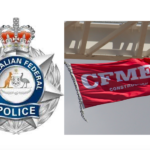Political Correctness, Racial Profiling and Policing

Last weekend saw groups of young people rioting through the city of Melbourne, disrupting the city’s annual Moomba family festival. Melbourne police reported that the property damage and violence carried out towards festivalgoers was largely the work of the Apex gang.
While Apex originally comprised young men of Sudanese descent, Southern Metro Assistant Police Commissioner Bob Hill says the gang has grown to over 150 members after merging with the YCW gang, made up primarily of people from Caucasian, Pacific Islander, Maori, Afghan and Indian backgrounds.
Political Correctness and Policing
Much of the reporting of the Melbourne riot has blamed Sudanese men and criticised police of going soft for fear of being branded racist.
According to some conservative commentators, political correctness is affecting the confidence of police when it comes to cracking down on ethnic gangs.
“Let us not mince words. Victoria Police and the state government have become too timid towards ethnic-based gangs… [who] then become emboldened and believe they can indulge in violence with impunity” said columnist Ron Iddles.
Labelling Theory
Labelling theory concerns the negative stereotyping of certain ethnic and social groups. In recent times, groups such as Muslims and those of Sudanese descent have been presented as more likely to commit crimes than the general population, and ‘labelled’ as criminals.
Government and Media Response
In response to recent events, newspapers have used the use evocative terms: “behaving like animals”, “violent thugs”, “terrorising Melbourne” and have attributed the violence to “young African men.”
Premier Daniel Andrews has vowed to “smash” Sudanese gangs who he says made the “evil choice” of engaging in violence.
“There are a lot of people in Victoria who have some history of disadvantage, who have got troubles in their lives, but they don’t behave like those on Saturday night,” said Mr Andrews, emphasising that he had no interested in “poor me” stories.
This response tends to ignore underlying factors and triggers for violent conduct.
Representatives of the Sudanese community have responded by pointing out that labelling the Apex gang as merely Sudanese youth is simply false. “The media headlines and police spokespersons have screamed ‘Sudanese ethnicity’ and linked it to this group of wild youth,” the statement said. “Time over and time over, we suffer this endless game of blaming our ethnicity.”
Racial profiling
Labelling theorists believe that taking the focus away from race, and instead addressing the underlying causes of crime, can lead to a reduction in offending. They believe demonising and stigmatising already disenfranchised groups is more likely to increase crime than to reduce it.
In 2013, a racial profiling lawsuit against police resulted in a $3 million out of court settlement. In response, the Victoria Police Manual was changed last November to prohibit “policing decisions that are not based on objective or reasonable justification, but on stereotypical assumptions about race, colour, language, ethnicity, ancestry or religion”.
Tamar Hopkins, a solicitor with the Flemington Community Legal Centre, says that negative media coverage was drawing a “a crazy linkage” between a stand against racial profiling and increased gang activity. “If anything the reverse is true: genuine work to reduce racial profiling will reduce the prevalence of these kinds of things [violent crime] happening in the cities,” she said, mirroring the views of labelling theorists.
Ethnic Gangs
There is no question there are groups of disenfranchised young men from various racial backgrounds – including Sudanese, Somalian, ‘Middle Eastern’, Islander and more.
Police statistics suggest that Sudanese and Somali-born Victorians are five times more likely to commit crimes than the broader community. Much of this crime, they say, is committed by those under 21, with robbery and assault being the most common offence categories.
However, statistics overlook the reasons behind offending – specifically, the social and economic disadvantage faced by these groups.
Disadvantage
Many African youths in Melbourne, or at least their families, have experienced terrible trauma and dislocation fleeing war-torn countries. Many suffer profound mental health issues and social dysfunction, which can lead to drug and alcohol abuse, learning difficulties and problems with obtaining employment. Sudanese arrivals have the highest unemployment rate of any migrant group, at 25 per cent. In 2011, their average personal income was below $300 a week, as opposed to $577 for all Australians. Difficulties in obtaining employment are compounded by racial stereotyping.
The Problem of Labelling
Approaches towards crime should look at the bigger picture, rather than label a particular group as prone to criminality. An editorial in The Age newspaper argued that a failure in parenting and lack of community ties, rather than race, are the primary risk factors when it comes to offending:
“Race itself is not the issue. Culture is. If a cohort of people – yes, a gang of Sudanese or Somalis or Pacific Islanders or any ethnic or religious group – indulge in group-based violence, then there is a failure in terms of parenting or mentoring by the respective community.”
Unfortunately, the editorial seems to imply that bad parenting and lack of social cohesion is a feature of certain ethnic groups, while ignoring the effect of other socio-economic factors.
What Can Be Done?
The approach of Dylan Andrews has been aggressively police ‘criminal’ groups. But as discussed in previous blogs, such approaches have a negligible, if any, effect on reducing crime rates.
The more sensible approach seems to be investing in basic infrastructure and community support in high crime areas. Initiatives by Justice Reinvestment have been remarkably effective in creating social unity and reducing crime rates in troubled communities. These initiatives involve investing into education, employment, housing, mental health support and diversionary programs in low socio-economic / high crime areas.
Perhaps we need to take the focus away from aggressive policy and invest into social infrastructure and support if we are to combat crime rates.
As Justice Reinvestment programs have shown, addressing high unemployment, lack of education, housing shortages, substance abuse and mental health issues is far more effective in combating crime than aggressive policing and racial profiling.






